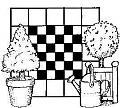 |

Donate with PayPal to help keep UKS online!
-
just don't call me The Boss

"The Stories that Bind Us"
I thought this was fascinating. And I think it touches on scrapbooking in an interesting way. On a couple of levels. First, I think it makes me think about the age old conflict of do I scrap everything, the good, the bad, and the ugly, or do I keep my albums a happy place? Next, I think it elevates a scrapbook to more than just a simple collection of photos when journaling that tells the story, and not just a one-word title, is included, as that scrapbook becomes a maybe a talking point, an open door where a family can find an easy entry to a discussion about topics that might not come up otherwise.
I know when looking back thru my books, or grabbing one to show especially DS a photo of something that happened when he was quite small, a layout has sparked off a long conversation about some forgotten person or previously undiscussed event - that's how DS found out about how his dad proposed to me, abut the job I did before he was born, the story and the deeper emotions about his brother, who he never knew, about his dad and how he met the friends that form the core of his circle of friends, what brought us to the UK to begin with when Jack was under 2...and so much more.
Now I do get that for a lot of people making layouts is more about creating a pretty page. That journaling is not a requirement if a one-word title or quote or lyric will do the job. But I am personally happy that I can go back and be reminded and that there will often be a spark the sets off a real "family moment" - whether it's because I initiate it or because Jack asks.
Clearly I am in a bit of a soppy mood  But even if YOUR scrapbooks don't serve the same function, I think the article is interesting, if long. But even if YOUR scrapbooks don't serve the same function, I think the article is interesting, if long.
If you prefer to read it in the newspaper format, I am hoping this link will let you - I'm never sure how long the link will stay active or if it is dependant on location so have added the text as well.
===========================================
The Stories That Bind Us
By BRUCE FEILER
I hit the breaking point as a parent a few years ago. It was the week of my extended family’s annual gathering in August, and we were struggling with assorted crises. My parents were aging; my wife and I were straining under the chaos of young children; my sister was bracing to prepare her preteens for bullying, sex and cyberstalking.
Sure enough, one night all the tensions boiled over. At dinner, I noticed my nephew texting under the table. I knew I shouldn’t say anything, but I couldn’t help myself and asked him to stop.
Ka-boom! My sister snapped at me to not discipline her child. My dad pointed out that my girls were the ones balancing spoons on their noses. My mom said none of the grandchildren had manners. Within minutes, everyone had fled to separate corners.
Later, my dad called me to his bedside. There was a palpable sense of fear I couldn’t remember hearing before.
“Our family’s falling apart,” he said.
“No it’s not,” I said instinctively. “It’s stronger than ever.”
But lying in bed afterward, I began to wonder: Was he right? What is the secret sauce that holds a family together? What are the ingredients that make some families effective, resilient, happy?
It turns out to be an astonishingly good time to ask that question. The last few years have seen stunning breakthroughs in knowledge about how to make families, along with other groups, work more effectively.
Myth-shattering research has reshaped our understanding of dinnertime, discipline and difficult conversations. Trendsetting programs from Silicon Valley and the military have introduced techniques for making teams function better.
The only problem: most of that knowledge remains ghettoized in these subcultures, hidden from the parents who need it most. I spent the last few years trying to uncover that information, meeting families, scholars and experts ranging from peace negotiators to online game designers to Warren Buffett’s bankers.
After a while, a surprising theme emerged. The single most important thing you can do for your family may be the simplest of all: develop a strong family narrative.
I first heard this idea from Marshall Duke, a colorful psychologist at Emory University. In the mid-1990s, Dr. Duke was asked to help explore myth and ritual in American families.
“There was a lot of research at the time into the dissipation of the family,” he told me at his home in suburban Atlanta. “But we were more interested in what families could do to counteract those forces.”
Around that time, Dr. Duke’s wife, Sara, a psychologist who works with children with learning disabilities, noticed something about her students.
“The ones who know a lot about their families tend to do better when they face challenges,” she said.
Her husband was intrigued, and along with a colleague, Robyn Fivush, set out to test her hypothesis. They developed a measure called the “Do You Know?” scale that asked children to answer 20 questions.
Examples included: Do you know where your grandparents grew up? Do you know where your mom and dad went to high school? Do you know where your parents met? Do you know an illness or something really terrible that happened in your family? Do you know the story of your birth?
Dr. Duke and Dr. Fivush asked those questions of four dozen families in the summer of 2001, and taped several of their dinner table conversations. They then compared the children’s results to a battery of psychological tests the children had taken, and reached an overwhelming conclusion. The more children knew about their family’s history, the stronger their sense of control over their lives, the higher their self-esteem and the more successfully they believed their families functioned. The “Do You Know?” scale turned out to be the best single predictor of children’s emotional health and happiness.
“We were blown away,” Dr. Duke said.
And then something unexpected happened. Two months later was Sept. 11. As citizens, Dr. Duke and Dr. Fivush were horrified like everyone else, but as psychologists, they knew they had been given a rare opportunity: though the families they studied had not been directly affected by the events, all the children had experienced the same national trauma at the same time. The researchers went back and reassessed the children.
“Once again,” Dr. Duke said, “the ones who knew more about their families proved to be more resilient, meaning they could moderate the effects of stress.”
Why does knowing where your grandmother went to school help a child overcome something as minor as a skinned knee or as major as a terrorist attack?
“The answers have to do with a child’s sense of being part of a larger family,” Dr. Duke said.
Psychologists have found that every family has a unifying narrative, he explained, and those narratives take one of three shapes.
First, the ascending family narrative: “Son, when we came to this country, we had nothing. Our family worked. We opened a store. Your grandfather went to high school. Your father went to college. And now you. ...”
Second is the descending narrative: “Sweetheart, we used to have it all. Then we lost everything.”
“The most healthful narrative,” Dr. Duke continued, “is the third one. It’s called the oscillating family narrative: ‘Dear, let me tell you, we’ve had ups and downs in our family. We built a family business. Your grandfather was a pillar of the community. Your mother was on the board of the hospital. But we also had setbacks. You had an uncle who was once arrested. We had a house burn down. Your father lost a job. But no matter what happened, we always stuck together as a family.’ ”
Dr. Duke said that children who have the most self-confidence have what he and Dr. Fivush call a strong “intergenerational self.” They know they belong to something bigger than themselves.
Leaders in other fields have found similar results. Many groups use what sociologists call sense-making, the building of a narrative that explains what the group is about.
Jim Collins, a management expert and author of “Good to Great,” told me that successful human enterprises of any kind, from companies to countries, go out of their way to capture their core identity. In Mr. Collins’s terms, they “preserve core, while stimulating progress.” The same applies to families, he said.
Mr. Collins recommended that families create a mission statement similar to the ones companies and other organizations use to identify their core values.
The military has also found that teaching recruits about the history of their service increases their camaraderie and ability to bond more closely with their unit.
Cmdr. David G. Smith is the chairman of the department of leadership, ethics and law at the Naval Academy and an expert in unit cohesion, the Pentagon’s term for group morale. Until recently, the military taught unit cohesion by “dehumanizing” individuals, Commander Smith said. Think of the bullying drill sergeants in “Full Metal Jacket” or “An Officer and a Gentleman.”
But these days the military spends more time building up identity through communal activities. At the Naval Academy, Commander Smith advises graduating seniors to take incoming freshmen (or plebes) on history-building exercises, like going to the cemetery to pay tribute to the first naval aviator or visiting the original B-1 aircraft on display on campus.
Dr. Duke recommended that parents pursue similar activities with their children. Any number of occasions work to convey this sense of history: holidays, vacations, big family get-togethers, even a ride to the mall. The hokier the family’s tradition, he said, the more likely it is to be passed down. He mentioned his family’s custom of hiding frozen turkeys and canned pumpkin in the bushes during Thanksgiving so grandchildren would have to “hunt for their supper,” like the Pilgrims.
“These traditions become part of your family,” Dr. Duke said.
Decades of research have shown that most happy families communicate effectively. But talking doesn’t mean simply “talking through problems,” as important as that is. Talking also means telling a positive story about yourselves. When faced with a challenge, happy families, like happy people, just add a new chapter to their life story that shows them overcoming the hardship. This skill is particularly important for children, whose identity tends to get locked in during adolescence.
The bottom line: if you want a happier family, create, refine and retell the story of your family’s positive moments and your ability to bounce back from the difficult ones. That act alone may increase the odds that your family will thrive for many generations to come.
“This Life” appears monthly in Sunday Styles. This article is adapted from Bruce Feiler’s recently published book, “The Secrets of Happy Families: How to Improve Your Morning, Rethink Family Dinner, Fight Smart, Go Out and Play, and Much More.”
-
Faffer Extraordinaire

Thanks for sharing this article. It's given me plenty to think about and raised a few interesting questions.
I do think scrapbooking can open the doors to some very interesting conversations and it's surprising how each of our memories on the same event can be very different.
-
Project Lifer.

I saw a similar article not long after I started doing pl a couple of years ago and it gave me a more of a reason to carry on and add stuff in that is the 'filler' between the 'events' that makes up life. I do agree with it and how important knowing about your connections is. Thanks for sharing it.
-
Master of cut and paste!

This is a beautiful article, Mary Anne, and so true. I even shared it on my FB page. And yes, it IS why we scrapbook. Even if kids seem to not care now, they will some day! And if there's nothing to give them (no memories, no photos, no stories), they'll have a big void in their lives.
Thanks for sharing it! 
-
Dedicated Scrapper

An interesting article, thanks for sharing. I put lots of things in my pl & scrap about everything although fortunately & luckily not too many bad things have happened for me to scrap about.
-
Dedicated Scrapper
- Limited Sponsor -

Interesting article but I do wonder sometimes if the researchers ever actually get out and talk to their own families or if they're even aware of what's going on around them in their own families.
I am of a certain age, and remember as children we were certainly not expected to ask questions and my mother's generation certainly didn't. So, I would question the 'The “Do You Know?” scale turned out to be the best single predictor of children’s emotional health and happiness as my mother's generation survived the 1930s, WW2, and its aftermath. They've all stayed together, and there are strong family ties.
Personally I have made a very conscious decision NOT to scrapbook all the dreadful stuff that's happened in the past - health related. I just don't see how that is going to contribute positively. It was B. awful. I don't want to remember and considering all the stresses involved, I'm really not sure it's going to help anyone in the family to be reminded. Talking about stuff does not always help.
-
You wait for a silence, I wait for a word

Thanks for sharing that MA, really interesting article!
-
I think that's a good article MA. I think I've read things by him before
The thing is Beanpole that families have changed since our parents were children. I have 2 boys who are 12 and 15 and all they want to do is be on a computer and although I keep them off for some of the time and arrange days out and other activities the computer/ipod is where they want to be where as in the past families would have spent time together and would have talked. I do talk to them and they do know about our family history and I have to say I laughed the other day when DS2 told me we were a close knit family - DH in the study on his PC, DS1 in the dining room on his laptop and DS2 in the lounge on his laptop. Not my idea of close knit but he obviously thinks we are. Perhaps it's to do with all the things he knows about his past and the family's past
Cris
-
Dedicated Scrapper
- Limited Sponsor -

Is it so different tho? Families certainly didn't 'talk' where I come from. That's the first thing you find out when you try doing family history! And the grownups certainly didn't talk in front of the children - not when my mum was little, nor when I was a child - which seems to be much the same now from what you say Cris, tho for different reasons. As children, generally, I think we were very much sheltered from what was going on around us - there is more openness now especially with tv/internet - kids will ask more and expect an answer.
Interesting debate tho
-
just don't call me The Boss

I think you have to be sensible - taking into consideration the age of the child, choosing words carefully, etc. When I told Jack about his brother for the first time he was maybe 6 or 7 and it was very much the bare bones of the story - he was born, his heart wasn't strong enough and he died. It wasn't till MUCH later that the story included more of the emotion, as well as how that situation informed some of the parenting choices we might have made with him (ie being just the teeniest bit overprotective....  ) )
And I do wonder, too, if it is partially that whole debate we have had here lots of times regarding journalling comes in to play. People used to say "Oh those Americans - their journaling is so soppy and revealing....we Brits would never do that" - I don't hear that as much now - is it generational? Younger generations are used to the spilling of your emotional guts all over a layout  and indeed all over reality TV shows, tabloids, Jeremy Kyle (? is that the right name? you know who I mean!) and indeed all over reality TV shows, tabloids, Jeremy Kyle (? is that the right name? you know who I mean!)
The real question is when will there be a study that tells us research has shown revealing to much of your family history makes kids more unstable.....
-
Dedicated Scrapper
- Limited Sponsor -

I think my mum and I talk more now than we ever did - I'm a lot older now!! and have more time. And all the illnesses/deaths have brought us closer together...
-
Master of cut and paste!

In my family, my mother said very little about her childhood. My dad, on the other hand, told us lots of stories about his. And his mother used to gather all of her four grandchildren in bed at night and tell us story after story of her childhood, which was fascinating. It really did bond her to us and us to each other. My mother's mother, on the other hand, was more standoffish and although she loved us dearly, we knew almost nothing about her childhood, which was a pretty bleak one, apparently.
As for scrapbooking the not-so-great stuff, I think we need to tread carefully. It may be difficult for others to understand and empathise with us, seeing it from a far-away perspective. Unless it's something that has a fairly happy outcome, I see no real reason to inflict that on others. As they say "Laugh and the world laughs with you; cry and you cry alone." You can scrap the crap if it brings some kind of closure or resolution for you, but keep it to yourself. It will NOT have the same effect on others.
-
Dedicated Scrapper

Fascinating stuff, and a great article. Thanks for sharing
 Posting Permissions
Posting Permissions
- You may not post new threads
- You may not post replies
- You may not post attachments
- You may not edit your posts
-
Forum Rules
|
But even if YOUR scrapbooks don't serve the same function, I think the article is interesting, if long.





 Reply With Quote
Reply With Quote


Bookmarks